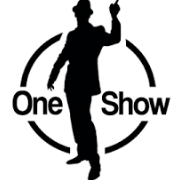You Wanna Buy A New Harddisk, Better Check This!
-
Recently Browsing 0 members
- No registered users viewing this page.
-
Topics
-
-
Popular Contributors
-
-
Latest posts...
-
58
Thai dating apps just escorts?
One would look a bit silly trying to take it for a walk -
3
Community Free Microchips for Pets Offered in Bangkok Registration Drive
This is something that people don't want it, even if it for free 🤔🤣 -
-
199
Finance Thailand Tightens Mobile Banking to Curb Scams
I went to my own SCB branch last week to update my books and to ask for a face scan, so they'd have it for transfers. The teller told me they still can't do face scans for foreigners, only Thais, but they're hoping to be able to do so for foreigners within this year (tied to passport I guess). -
58
Thai dating apps just escorts?
I get around 8 replies per week, of which I choose 1 or 2 girls. This is on TF only. Then I also get about 1 or 2 girls per week on Bumble, which has far less sex workers and more professionals, but also more older women sadly. Obviously it depends on how backed up I am as I have 4 girls on rotation that are regulars and if I'm busy with them i can't put as much time into replying on TF and Bumble. So nothing earth shattering, just good honest hard sex work. -
6
How evil is Daniella Weiss?
You are misrepresenting facts aging . You are writing things that are untrue . I did not try to smear you as an alcoholic because you made a joke about leather allergy . That is untrue a lie . I can`t even trust myself. You posted yourself that you cannot control your drinking . You stated yourself that you cant control your drinking/alcoholic . I just repeated what you yourself said Somjot said : "Every time I go out into the Pattaya nightlife, for an hour or two and a beer or two, well, let`s say, it never stops at "2""
-
-
Popular in The Pub



.thumb.jpg.b54783ad387f65d779e04f535fcfeee9.jpg)









Recommended Posts
Create an account or sign in to comment
You need to be a member in order to leave a comment
Create an account
Sign up for a new account in our community. It's easy!
Register a new accountSign in
Already have an account? Sign in here.
Sign In Now